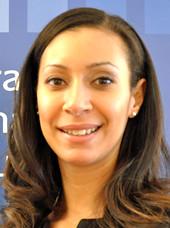Événement
Détails
November 1989, people celebrating on top of the Berlin Wall
After the Second World War, Berlin was a divided city. In the years after the war there was a steady flow of refugees heading West. The leadership of the Soviet Union eyed the growing outflow of East Germans with increasing unease and on August 13, 1961 the 96-mile long Berlin Wall was built. The East German government established a “Death Strip” along the border, giving guards strict orders to shoot anybody trying to flee to the West.
At the closing of the 1980s, the Cold War tensions were easing under the leadership of Reagan and Gorbachev and tens of thousands of people in Eastern bloc countries were protesting for political change and freedom. Under pressure, the East German communist party announced on November 9, 1989 that East German citizens would be allowed to travel to the West. After this stunning announcement, citizens from both sides of the city flooded the checkpoints and around midnight the gates opened. This night would later be described as “the greatest street party in the history of the world”. The Berlin Wall was soon gone and the path was cleared for Germany’s reunification on October 3, 1990.
Thirty years after the fall of the Berlin Wall, political winds are shifting in Europe and the United States. Liberal democracy is under threat, rightwing ideologies are on the rise on both continents and long standing alliances are under pressure. Our esteemed experts will take a look at today’s transatlantic ties and examine the consequences of the history-making events of 1989. The panelists will discuss the events of November 1989 and the political consequences to this day. We invite you to join the debate on today’s challenges faced by our countries on both sides of the Atlantic in light of the events in Berlin thirty years ago.
NOTE: Registration is on a first come, first serve basis. This event is open to the press. Members of the media please RSVP at USAfazkas@kas.de.
DRESS CODE: Business attire
#USAfazkas
Programme
6:15pm Event Check-in
Pennsylvania Ave. Entrance
NOTE: There will be a security check. Please bring a valid, government issued ID.
Coat check will be provided.
NOTE: There will be a security check. Please bring a valid, government issued ID.
Coat check will be provided.
Opening Remarks
Prof. Dr. Norbert Lammert
Chairman of the Konrad-Adenauer-Stiftung and former President of the German Parliament
Chairman of the Konrad-Adenauer-Stiftung and former President of the German Parliament
Podium Discussion
Susan B. Glasser (moderator)
Staff Writer and Columnist at The New Ýorker
Heather A. Conley
Senior VP for Europe, Eurasia and the Arctic and Director of the Europe Program at the Center for Strategic& International Studies (CSIS)
Prof. Dr. Hope M. Harrison
Historian at the George Washington University, and author of "After the Berlin Wall: Memory and the Making of the New Germany, 1989 to the Present" as well as "Driving the Soviets up the Wall".
Majid Sattar
Political Correspondent & Editor at Frankfurter Allgemeine Zeitung (F.A.Z.)
Robert B. Zoellick
Principal at Brunswick Group, Senior Fellow at the Belfer Center at Harvard University, former President of the World Bank, former U.S. Deputy Secretary of State and Trade Representative. In 1989-92, Zoellick served as an Under Secretary of State and as the lead senior U.S. official in the Two-plus-Four negotiations for German Unification, for which the German Government awarded him the Knight Commanders Cross with Star.
Staff Writer and Columnist at The New Ýorker
Heather A. Conley
Senior VP for Europe, Eurasia and the Arctic and Director of the Europe Program at the Center for Strategic& International Studies (CSIS)
Prof. Dr. Hope M. Harrison
Historian at the George Washington University, and author of "After the Berlin Wall: Memory and the Making of the New Germany, 1989 to the Present" as well as "Driving the Soviets up the Wall".
Majid Sattar
Political Correspondent & Editor at Frankfurter Allgemeine Zeitung (F.A.Z.)
Robert B. Zoellick
Principal at Brunswick Group, Senior Fellow at the Belfer Center at Harvard University, former President of the World Bank, former U.S. Deputy Secretary of State and Trade Representative. In 1989-92, Zoellick served as an Under Secretary of State and as the lead senior U.S. official in the Two-plus-Four negotiations for German Unification, for which the German Government awarded him the Knight Commanders Cross with Star.
Audience Q&A
Audience members will have the opportunity to ask questions.
Closing Remarks
Dr. Gerhard Wahlers
Deputy Secretary General & Head of the European and International Cooperation Department at the Konrad-Adenauer-Stiftung
Deputy Secretary General & Head of the European and International Cooperation Department at the Konrad-Adenauer-Stiftung
8:00 - 10:00 Reception
The reception will be on Concourse and Atrium levels.
Food and beverages will be served.
Guests will have access to:
- The Berlin Wall Gallery
- The Pulitzer Price Photographs Gallery
- Further exhibits on the second floor
Food and beverages will be served.
Guests will have access to:
- The Berlin Wall Gallery
- The Pulitzer Price Photographs Gallery
- Further exhibits on the second floor





